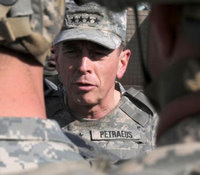With his recent selections of Gens. David Petraeus and James Mattis for command in Afghanistan and Central Command respectively, President Barack Obama signals his understanding that his previously established deadline of mid-2011 to begin drawing down combat troops in the "good war" cannot be met. The two were co-architects of the military's renewed embrace of both counterinsurgency operations and the associated nation-building project that by necessity goes along with it. Neither flag officer can be expected to preside over a Vietnam-like exit that once again puts troubled and untrustworthy Pakistan in charge of Afghanistan's fate.
And so, despite the conventional wisdom that continues to insist that America will never do "another Iraq" in the sense of committing itself to a long-term stabilization and reconstruction effort, we find ourselves heading down this exact path yet again. Proponents of the big-war mindset within the U.S. military will naturally be aghast, as will the "limited regret" pundits who prefer America keep its powder dry for "rising China" and other challengers. But so long as Robert Gates continues as secretary of defense, their lamentations will fall on deaf ears -- save for a cluster of dedicated pork-barrel rollers in Congress who insist on making the Pentagon buy expensive platforms it does not want and cannot afford.
So what can we expect from the dynamic duo of Petraeus and Mattis? Per their co-directed counterinsurgency manual, we will see a shift from the Kabul-centric diplomacy of the Obama administration to a provincial-level, jobs-creation focus on economic stabilization -- the only true way to "hold" following any kinetic "clear." If anything, the "civilian surge" begun under Gen. Stanley McChrystal will only get larger -- and hopefully a lot more internationalized beyond our rapidly tiring NATO allies.

